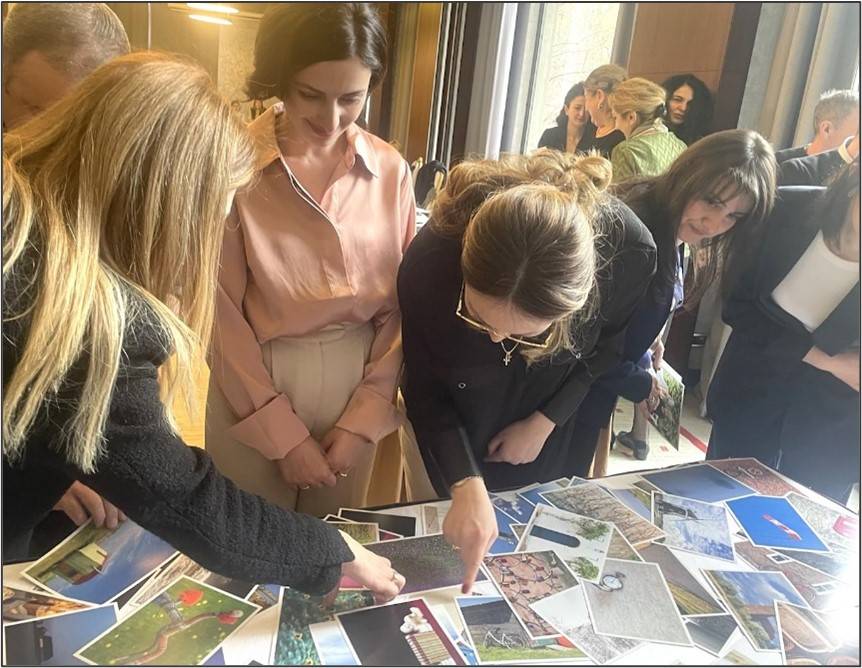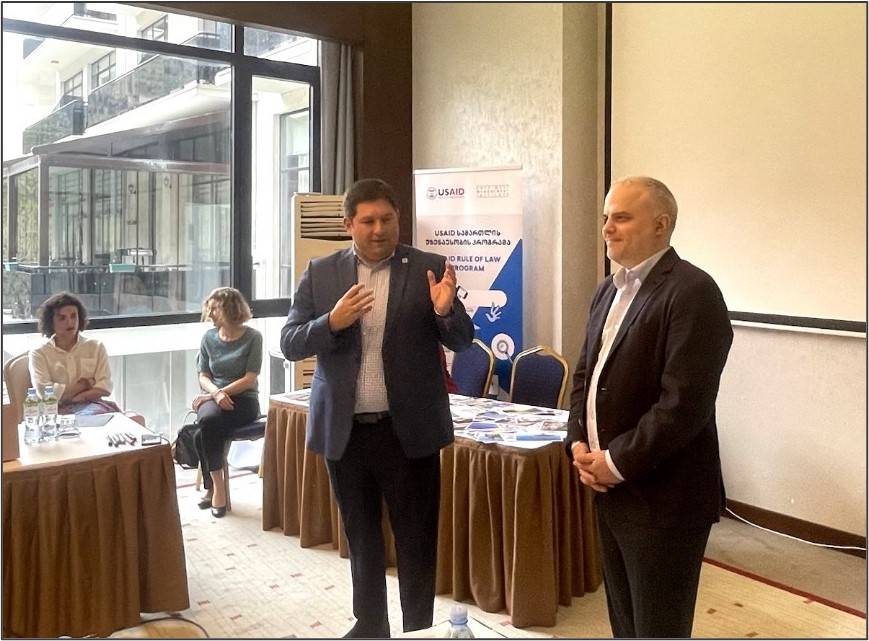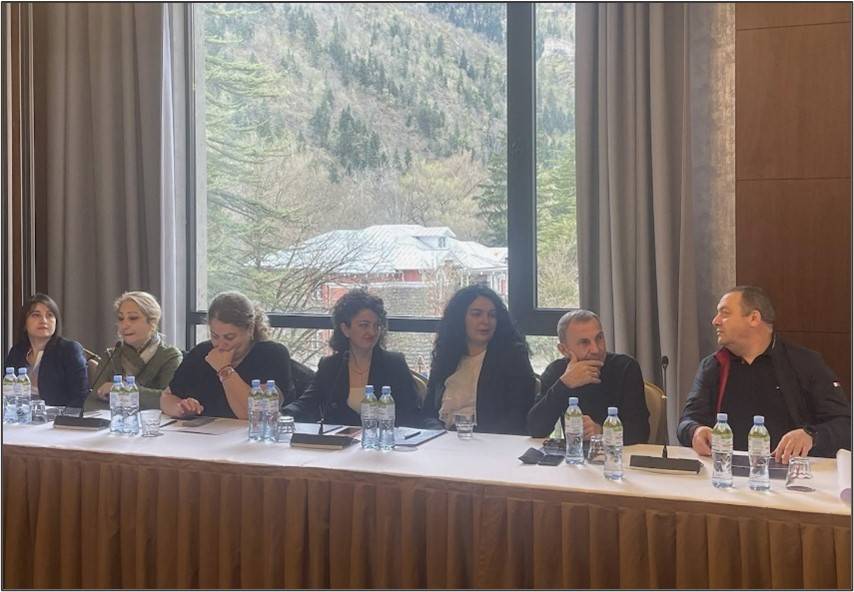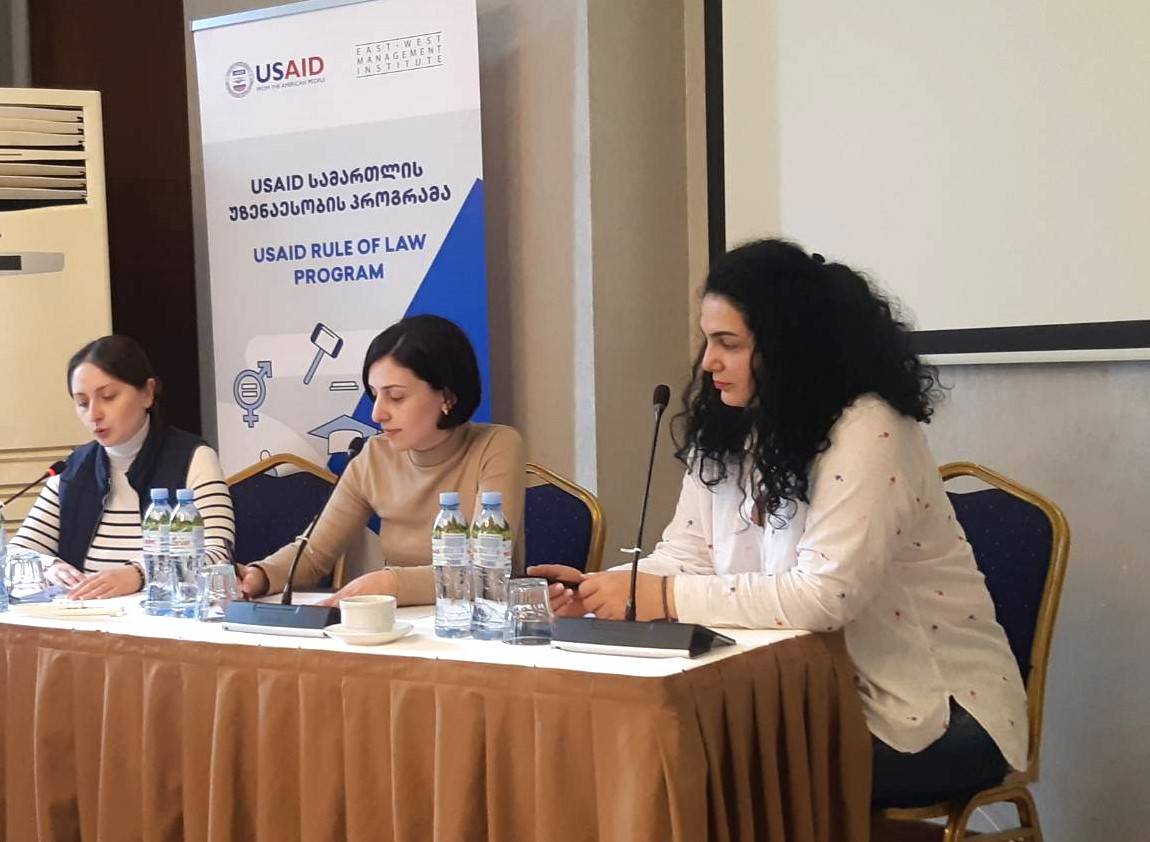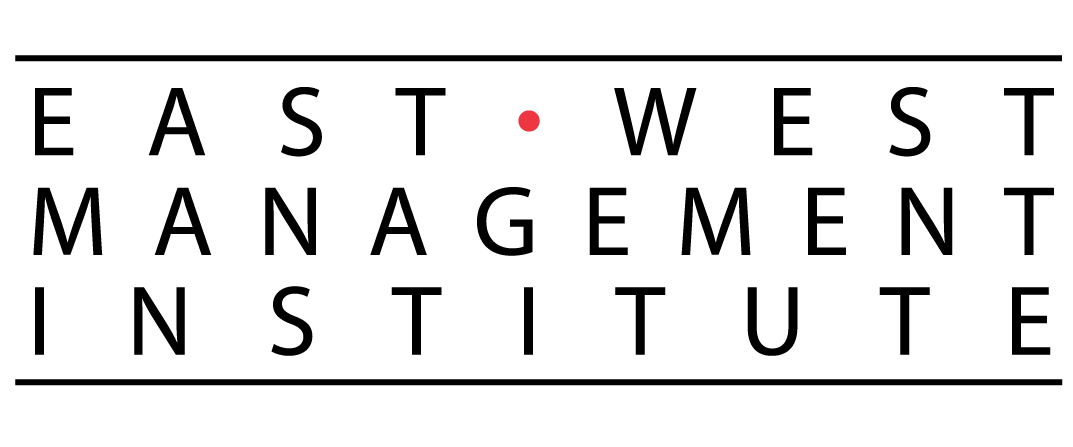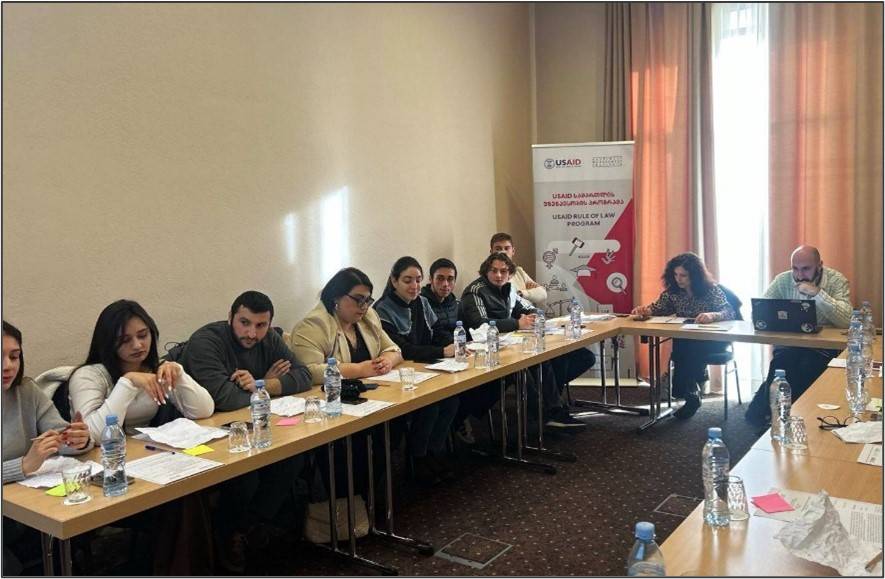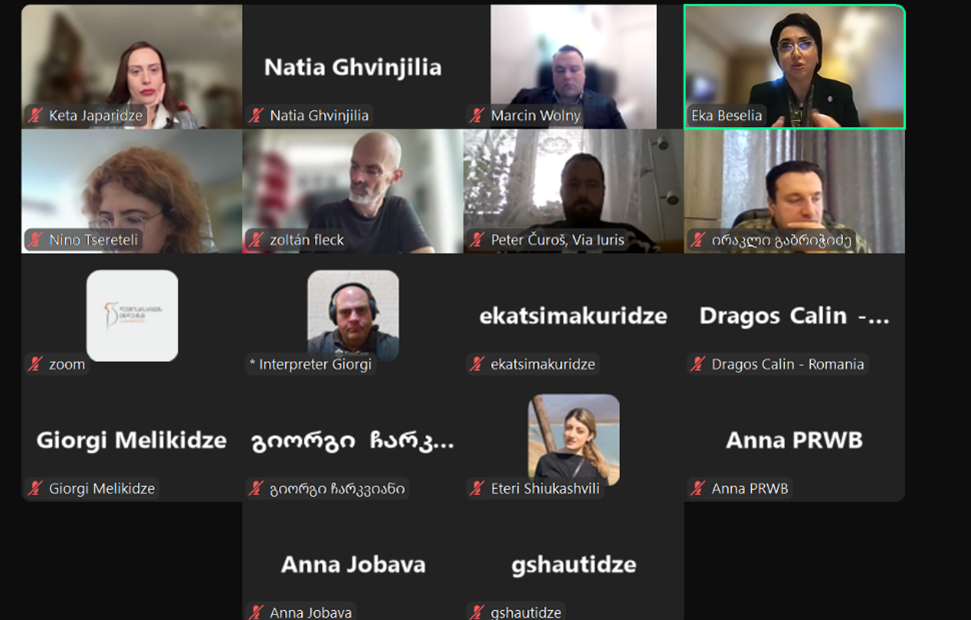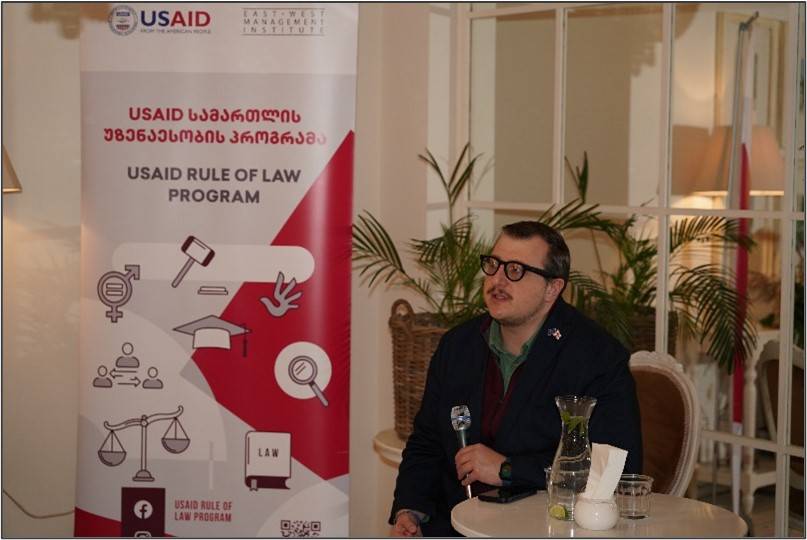Judges and Judicial Assistants Participate in Mediation Workshops
On April 12-14, 2024, the USAID Rule of Law Program hosted two parallel workshops on mediation for judges and judicial assistants from Mtskheta District Court and Tbilisi City Court (the largest distributor of cases to the court mediation).
The workshops were led by mediation experts including Irakli Kandashvili (Chairman of the Georgian Mediators Association (MAG)), Eter Chachanidze (practicing mediator with extensive experience working with judges), Sopho Chachava (MAG Executive Board member and practicing mediator), and Elene Orjonikidze (MAG Executive Board member and coordinator for the court-annexed mediation center for Tbilisi City Court).
The workshops, involving 17 judges and 32 judicial assistants, focused on several key areas: differentiating between court settlement and mediation; understanding the essence of mediation, its principles, and stages; identifying criteria for case referral to mediation and the factors judges and assistants should consider during case screening; understanding the case referral process and information about MAG, including mediator training and selection for specific cases; cooperation with mediation center coordinators; and exploring various models of information sessions for judges, consultants, assistants, managers, and mediators.
Additionally, discussions covered topics such as the extension of mediation terms, case suspension, and the application of measures to secure mediation settlement agreements. Furthermore, the enforcement procedure and grounds for refusal of settlement agreements resulting from mediation were also addressed.
While most sessions were conducted separately for judges and assistants, there were joint sessions at the end of each day where participants discussed shared questions and experiences.
During a joint session, Judge Ucha Todua from Tbilisi City Court shared his approach to referring cases to mediation, emphasizing that he includes a reference to try mediation in his rulings when admitting a court case. This approach mandates parties to engage in mediation before the court hearing, providing them with confidence that their case will be heard by a judge on a specified date if mediation fails.
The trainers also discussed recent trends in mediation development, highlighting the increasing tendency for automatic case referrals for labor disputes and family disputes. They stressed the importance of mandatory information sessions on the benefits of mediation before court hearings.
Following the workshop, participants expressed their appreciation for the event and indicated that they are now fully updated on developments in the field of mediation.
